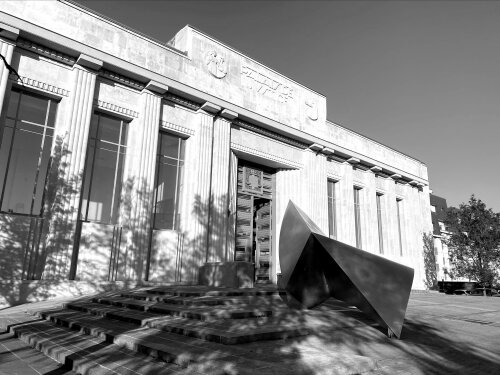Best Due Diligence Lawyers in France
Share your needs with us, get contacted by law firms.
Free. Takes 2 min.
Or refine your search by selecting a city:
List of the best lawyers in France
About Due Diligence Law in France
Due diligence in France refers to a comprehensive appraisal process undertaken by individuals or companies to assess the legal, financial, and operational risks before entering into a transaction, such as acquiring a business, lending money, or making significant investments. This process ensures that all necessary information is gathered and reviewed to make informed decisions. France, with its distinct legal system, imposes specific requirements and procedures that must be adhered to during due diligence. These may involve analyzing corporate documents, financial statements, environmental regulations, employment contracts, intellectual property rights, and compliance with local laws.
Why You May Need a Lawyer
Engaging a lawyer specializing in due diligence can be crucial for several reasons. A lawyer can help navigate the complexities of French law and regulatory requirements during mergers and acquisitions, real estate transactions, or joint ventures. Lawyers conduct thorough investigations to uncover potential liabilities, ensure compliance with local regulations, draft and review contracts, and negotiate terms that protect clients' interests. Legal counsel is often indispensable in avoiding pitfalls that could lead to financial loss or legal disputes post-transaction.
Local Laws Overview
Due diligence in France involves several local laws that are essential to understand:
- French Commercial Code: Outlines the obligations of companies during acquisitions, mergers, and business operations.
- French Civil Code: Provides the foundation for contracts and obligations relevant to due diligence processes.
- Competition Laws: Governed by the Autorité de la concurrence, these laws prevent anti-competitive practices during mergers and acquisitions.
- Environmental Laws: Regulations that must be adhered to when dealing with property transactions to ensure compliance with environmental standards.
- Employment Laws: Crucial when evaluating a company’s workforce, including aspects of labor contracts and social security obligations.
Frequently Asked Questions
What is the main objective of due diligence?
The primary objective of due diligence is to identify and assess risks, verify information, and ensure that all relevant factors are considered before completing a financial transaction or business deal.
When is due diligence typically performed?
Due diligence is usually carried out before finalizing a purchase, merger, or investment to evaluate the assets and liabilities of a target company comprehensively.
Who can conduct due diligence in France?
Due diligence can be conducted by legal professionals, financial advisors, auditors, and other experts depending on the type of transaction and the specific areas that need investigation.
How long does the due diligence process take in France?
The duration of due diligence varies depending on the transaction's complexity but generally ranges from a few weeks to several months.
What documentation is typically reviewed during the due diligence process?
Common documents include financial statements, contracts, corporate records, tax returns, regulatory filings, and information on intellectual property rights.
Is due diligence mandatory for all transactions in France?
While not legally mandatory, due diligence is considered a best practice and is highly recommended to mitigate risks and ensure informed decision-making.
Can due diligence uncover hidden liabilities?
Yes, a thorough due diligence process can reveal undisclosed or hidden liabilities that could impact the valuation or desirability of a transaction.
What role do accountants play in due diligence?
Accountants analyze financial data and transactions to ensure accuracy and compliance with accounting and tax regulations, vital for assessing a target's financial health.
What are the potential consequences of inadequate due diligence?
Insufficient due diligence can lead to unforeseen liabilities, financial loss, reputational damage, and legal disputes.
Can poor due diligence result in legal action in France?
Yes, inadequate due diligence that results in misinformation or lack of disclosure can lead to legal action, financial penalties, or cancellation of the transaction.
Additional Resources
For more information on due diligence in France, consider consulting the following resources:
- Chamber of Commerce and Industry (CCI): Offers guidance and resources for businesses looking to expand or invest in France.
- Autorité des Marchés Financiers (AMF): Regulates financial markets and offers insights into compliance and due diligence standards.
- French Ministry of Economy and Finance: Provides information on the regulatory environment and economic policies relevant to due diligence.
- Professional Associations: Organizations such as the French Bar Association can help connect you with legal professionals specializing in due diligence.
Next Steps
If you need legal assistance with due diligence in France, follow these steps:
- Identify Your Needs: Determine the nature of the transaction and specific areas where you require expertise.
- Seek Recommendations: Contact business associates or industry professionals for recommendations on reliable legal experts.
- Consult a Lawyer: Schedule consultations with due diligence attorneys to discuss your case and evaluate their expertise and experience.
- Engage Legal Services: Collaborate with the chosen legal professional to conduct due diligence effectively and thoroughly.
- Review and Decide: Evaluate the due diligence report, consult with your legal counsel, and proceed with informed decision-making.
Lawzana helps you find the best lawyers and law firms in France through a curated and pre-screened list of qualified legal professionals. Our platform offers rankings and detailed profiles of attorneys and law firms, allowing you to compare based on practice areas, including Due Diligence, experience, and client feedback.
Each profile includes a description of the firm's areas of practice, client reviews, team members and partners, year of establishment, spoken languages, office locations, contact information, social media presence, and any published articles or resources. Most firms on our platform speak English and are experienced in both local and international legal matters.
Get a quote from top-rated law firms in France — quickly, securely, and without unnecessary hassle.
Disclaimer:
The information provided on this page is for general informational purposes only and does not constitute legal advice. While we strive to ensure the accuracy and relevance of the content, legal information may change over time, and interpretations of the law can vary. You should always consult with a qualified legal professional for advice specific to your situation.
We disclaim all liability for actions taken or not taken based on the content of this page. If you believe any information is incorrect or outdated, please contact us, and we will review and update it where appropriate.
Browse due diligence law firms by city in France
Refine your search by selecting a city.
















